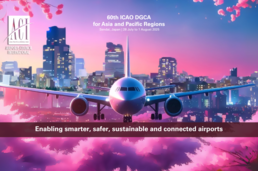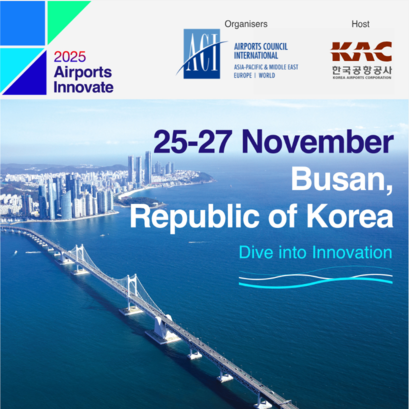
[Exclusive] Interview with ACI Asia-Pacific Director General Stefano Baronci: Contactless Technology to Reduce Passenger Stress Amid COVID Resurgence
- 2022-08-12
Traveling overseas can be a stressful experience during the COVID-19 pandemic.
To relieve such jitters, airports need to step up efforts for digital transformation and technological innovation to help passengers travel without worries amid a resurgence of COVID 19 infections led by a new and highly-transmissible variant, according to the Asia-Pacific chief of an international organization of airport authorities.
Stefano Baronci, Director General of the Airports Council International (ACI) Asia-Pacific, said the pandemic has "brought technology to the fore and has only accelerated the digital transformation that was already in place before," during an interview, July 7, with The Korea Times at the headquarters of the Korea Airports Corp. (KAC) in Seoul.
He visited Korea to participate in the International Civil Aviation Organization's (ICAO) 57th conference of Directors General of Civil Aviation (DGCA) for Asia and Pacific regions, jointly organized by the Ministry of Land, Infrastructure and Transport and the ICAO, from July 4-8. The Hong Kong-based council represents 131 members operating 617 airports in 49 countries.
This year, the annual event was held in Incheon to discuss aviation policies in the region with civil aviation chiefs from 41 countries, and the topics included the industry's economic recovery, decarbonization, and digitalization.
Baronci said that airports need to look for solutions that can enable them to become more efficient, reduce costs, and deal with the evolving needs of passengers via contactless technology and biometrics authentication, praising the KAC for its leading role in these areas.
The KAC has developed and implemented since 2018 a palm vein biometrics authentication system on all domestic flights at the 14 airports it operates. Passengers who have registered their palm vein patterns can instantly confirm their identity with biometric information, instead of carrying a passport or citizen's registration card.
According to the organization, the system significantly shortens boarding time by automating the visual identity confirmation process previously done by the airport staff. It shortens a maximum of 44 minutes of boarding time on flights between Gimpo and Jeju and the KAC plans to introduce the technology to overseas airports.
Such contactless technology can compensate for the stress that passengers experience from security processes and constantly changing health protocols.
"Airports like Incheon and those of KAC were already starting and piloting these models before COVID-19. But there was an acceleration and it's something that other airports are considering to stay competitive," he said.
The Asia-Pacific region's aviation industry has lost billions of passengers and $40 billion in revenue between 2021 and 2022.
"It will likely be a difficult and long recovery," Baronci said, quoting the latest forecast issued by ACI World showing that the Asia Pacific is expected to show the slowest recovery, reaching only 62 percent of pre-pandemic passenger volumes in 2022, while others have already recovered to 80 to 90 percent.
Baronci explained that the region's slow recovery is due to the slow reopening of borders and conservative health protocols by China and Japan, whose borders have not yet fully reopened and have a high impact on the region's passenger dynamic.
However, the Asia Pacific's potential for growth remains high considering its large demographic and relatively low air travel propensity or the number of per-capita air trips. China, Vietnam and India comprise around 40 percent of the global population, while the average propensity to fly in the Asia Pacific is less than 0.5 ― significantly lower than the European figure at 1.8 travels and over 2 for the U.S.
Thus, the countries in the Asia Pacific are relatively disconnected by flights and more aviation infrastructure, technology and overall advancement in service quality is needed to accommodate the market's growth.
Also, the aviation council chief underlined the importance of strengthening international airport codes by sharing airport operation expertise and technology through consultancy contracts.
"The trend is the strengthening of international airport groups … and I see this trend to continue and improve because the effect and value created (from sharing expertise) are objectively very high," Baronci said, encouraging Korea's work as a leading airport operator in the region to enhance market standards.
The KAC has been exporting its 40 years of airport construction, management and monetization expertise to 15 countries in Southeast Asia, Africa and Latin America.
- CATEGORY
- COUNTRY / AREA
- Republic of Korea
- AUTHOR
- The Korea TimesLee Hae-rin


![[Exclusive] Interview with ACI Asia-Pacific Director General Stefano Baronci: Contactless Technology to Reduce Passenger Stress Amid COVID Resurgence](/f/blog/3446/739c416/the%20korea%20times.jpg)





